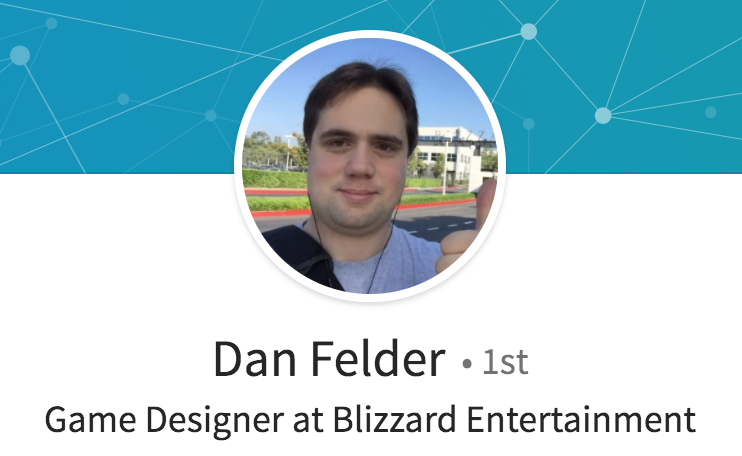Last week, we did one of my favorite things you can do in the classroom in this age of the Internet – we brought in an expert guest speaker via digital teleconference. Right away, I was reminded of my age when I heard murmurs in my classroom as I brought up the Skype interface on the big screen. “I’ve never seen what Skype looks like before,” I heard one student say. Not because it is so new, but at 14 years old, it is old school to my young college students who have a plethora of telecommunications media at their fingertips.
Evidently, however, this old dog still has a few tricks up his sleeve. Our guest was Dan Felder, a game designer at Blizzard Entertainment, and it was a student who made the initial contact and invitation to visit with our class. For years I have been promoting the value of using social media as a serious professional networking tool, and our K-State Polytechnic student Jon Gabay connected with Mr. Felder initially through Twitter, and then with LinkedIn. I’m always happy when the advice I give for using social media to build a personal learning network actually pays off.
When I heard about Mr Felder, I encouraged Jon to reach out and see if he was willing to video chat with us. He did, and we recently did the video chat. Some of the suggestions I learned that day include:
- Explore how games work. Reinvent existing games. Make new games up. Dan made a new board game up every two weeks while he was in college, starting with existing games and reworking them.
- Tabletop Simulator is highly recommended for testing out game ideas.
- Regarding the design process, he said to design 100-1000 things for every one thing that you actually wind up using. This is solid advice for any kind of designer, not just for game design.
- He spends most of his time working on his process. He studies architecture. He studies psychology. He uses music playlists to design with feeling.
- Listen to player community perceptions, but not their advice. Perceptions or feelings about the user experience are always right, but their recommendations for improvement most likely won’t be helpful. That’s where experience and expertise come in to play.
- For more on the art and science of game design, he recommends seeing his Design 101 series on Gamasutra.
It was a great honor to have Dan Felder visit our game development class this semester. Thanks Dan!

